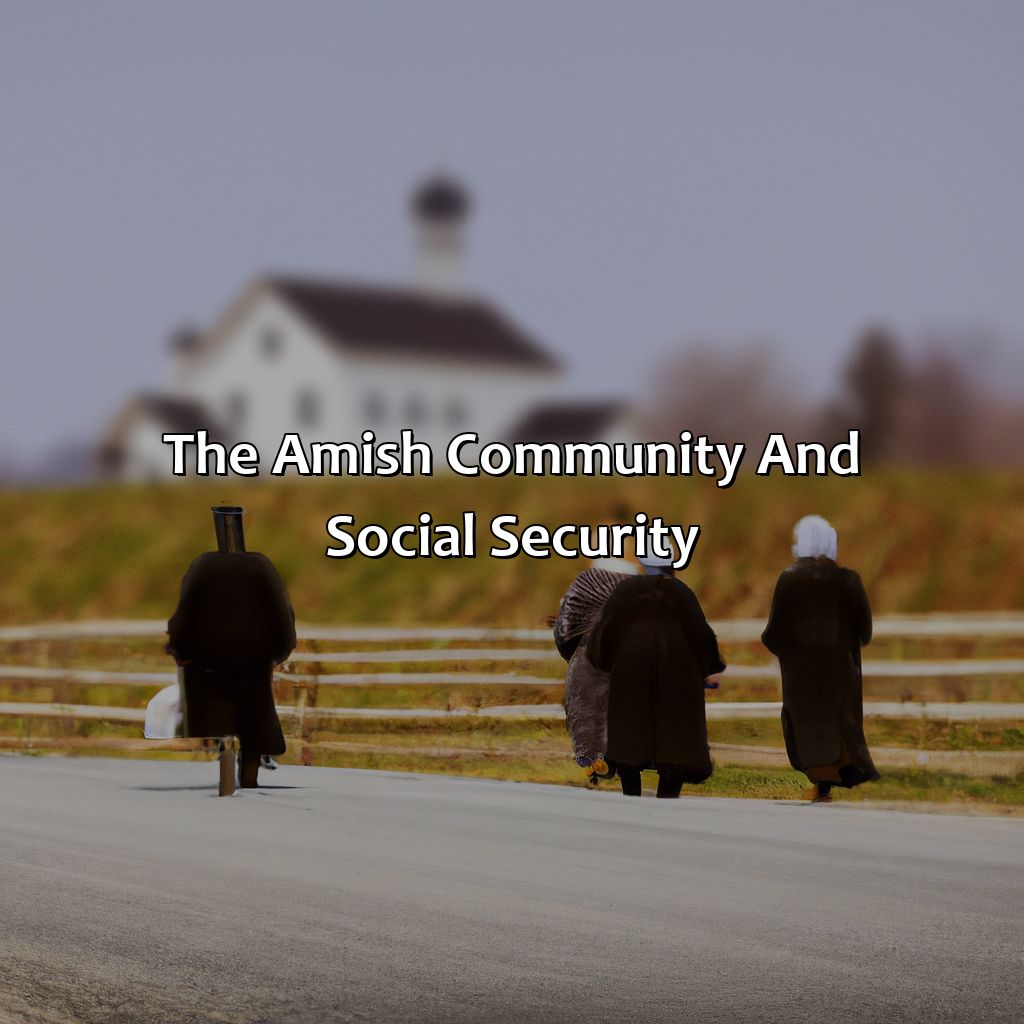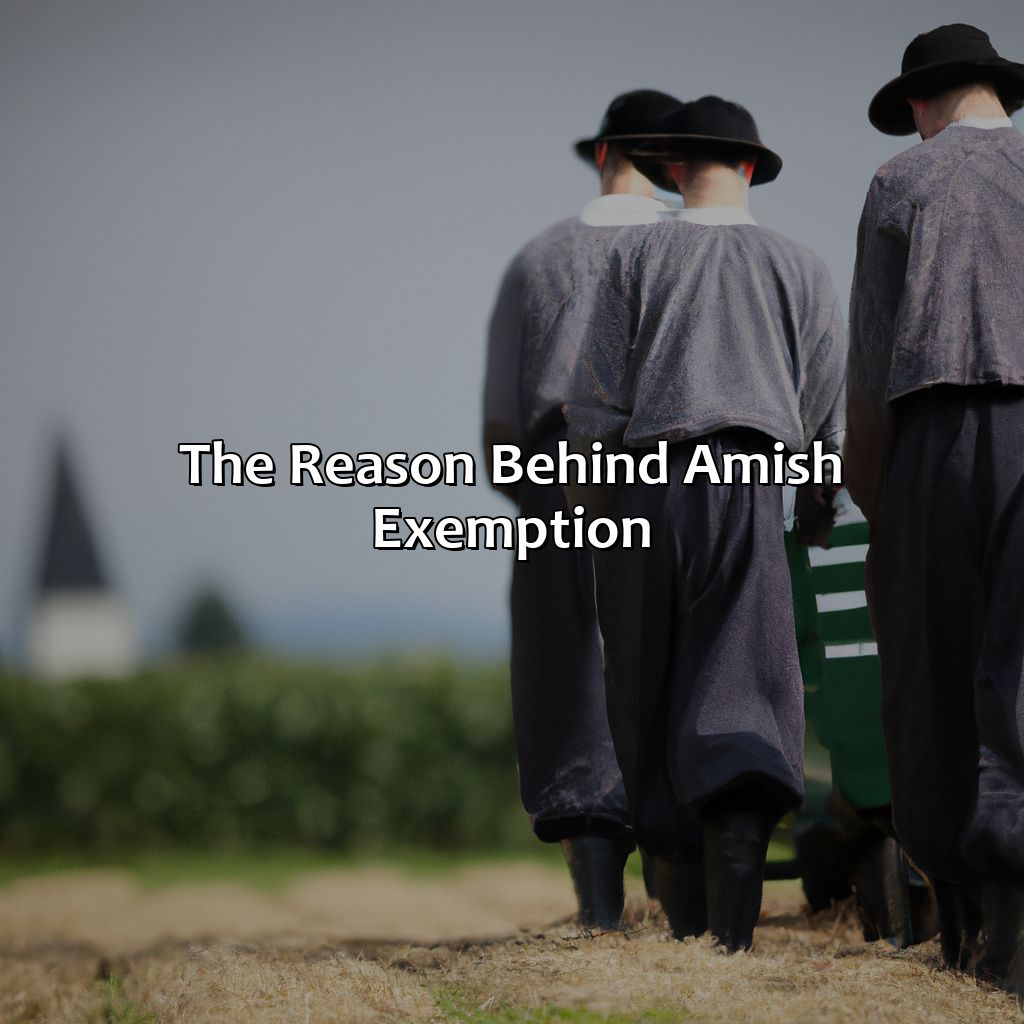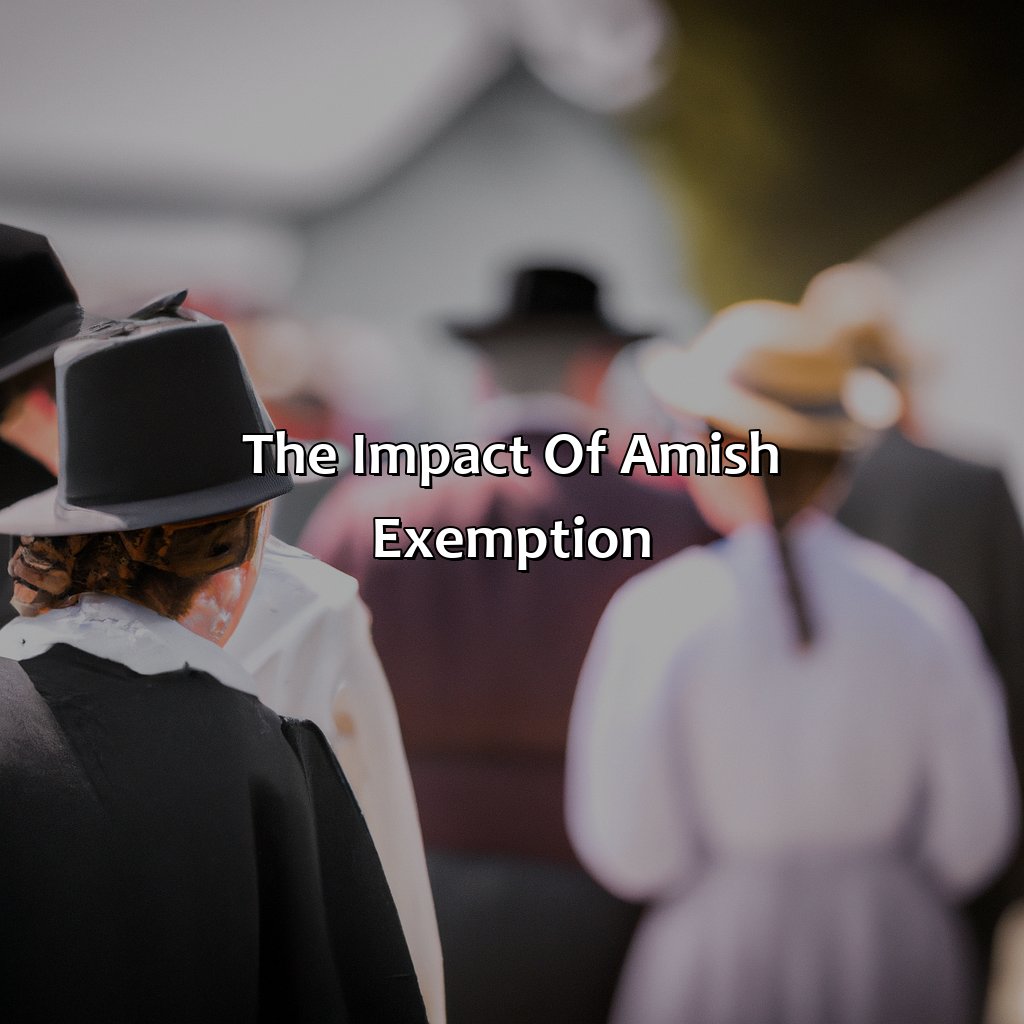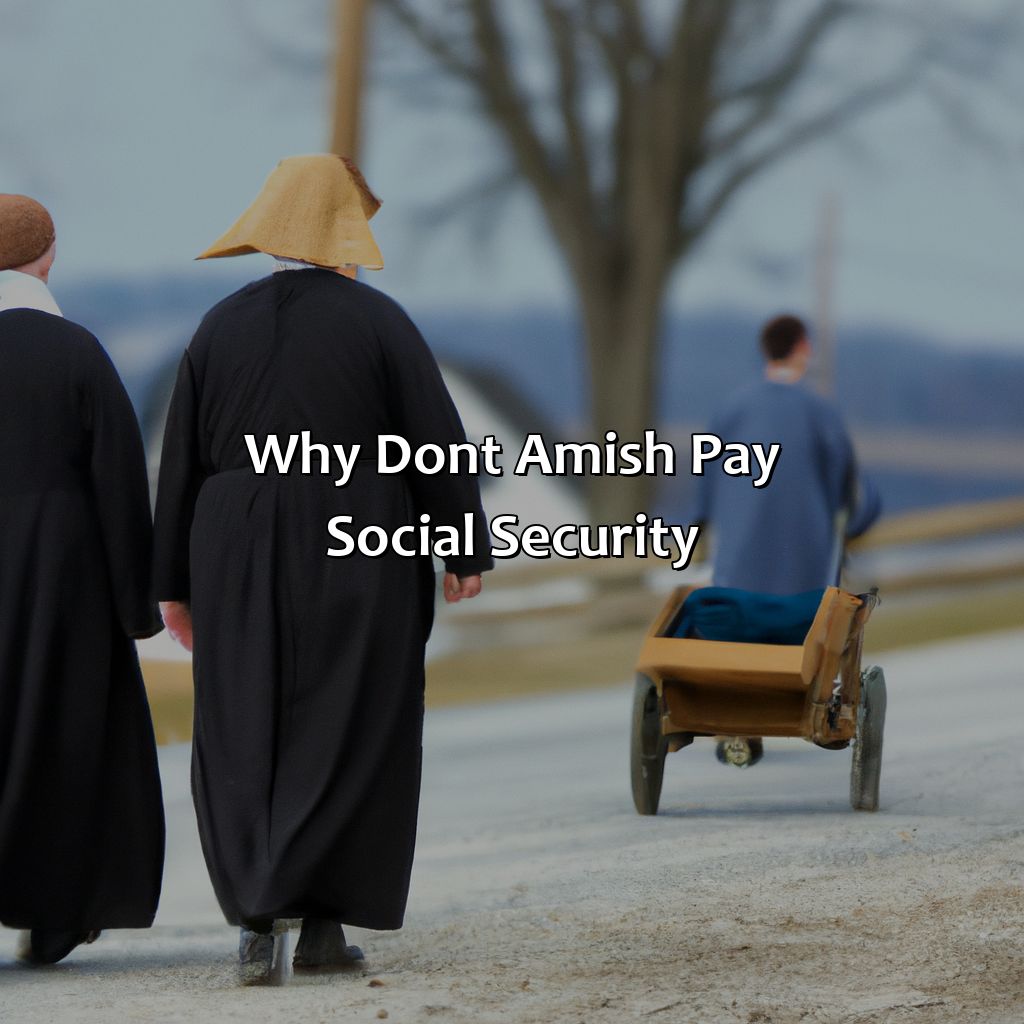Why Don’T Amish Pay Social Security?
Key Takeaway:
- The Amish community is exempt from social security due to their religious beliefs, which emphasize self-sufficiency and communal support rather than reliance on government programs.
- The Amish have alternative methods of care, such as mutual aid societies and community-wide health funds, that allow them to provide for their elderly and disabled members without the need for social security.
- The exemption of the Amish community from social security has both benefits and drawbacks, including reduced reliance on government aid but also potentially limiting access to certain benefits and increasing the burden on non-Amish taxpayers.
Are you curious about why the Amish refuse to pay social security taxes? This article takes a look into the religion, culture and beliefs of the Amish community and explains their reasons for not participating in the taxation system. Discover the unique ways the Amish support their elderly and how they manage their own social security system.
The Amish Community and Social Security
The Amish practice a religion that does not permit them to receive or pay social security. This has resulted in them obtaining an exemption from the Federal Insurance Contributions Act (FICA) tax. The reason behind Amish being exempted from social security is due to their belief in taking care of the elderly and the disabled within their community by providing financial assistance. The Amish consider it a duty to provide for their own rather than depending on government assisted programs.
Furthermore, the Amish practice a simple lifestyle and do not believe in the accumulation of wealth. By opting out of social security, they are able to preserve and maintain their cultural identity. It is estimated that a majority of the Amish population meets the criteria for an exemption from social security.
Pro Tip: While the Amish community does not pay into social security, they still have an obligation to pay taxes on their income. It is important to understand the unique circumstances of the Amish when dealing with their financial obligations.

Image credits: retiregenz.com by David Woodhock
The Reason behind Amish Exemption
The Amish community of the United States is known for its strong religious beliefs and unique lifestyle, including their exemption from Social Security.
The reason behind this exemption is their belief that it is the responsibility of the community to provide for its members, and that relying on outside assistance goes against their principles of self-sufficiency and mutual support.
This belief is deeply ingrained in the Amish faith, which is based on the teachings of Jesus and focuses on simplicity, humility, and nonviolence. They view Social Security as a form of government intervention that undermines their values and way of life, and instead choose to rely on their own resources and the support of their community.
Despite their exemption from Social Security, the Amish still face challenges in providing for their elderly and disabled members, and have developed their own alternative systems for healthcare and welfare. These include church-run mutual aid programs, private health savings accounts, and community-based support networks.
While the Amish exemption from Social Security may not be practical or desirable for everyone, it highlights the importance of self-sufficiency and community support, and offers valuable lessons for those seeking alternatives to government-provided services. By prioritizing their values and relying on their own resources, the Amish have created a unique and sustainable way of life that serves as an inspiration to others.

Image credits: retiregenz.com by James Duncun
The Impact of Amish Exemption
As per the US Government’s laws, Amish are exempted from paying social security taxes. This exemption has both positive and negative impacts. On one hand, Amish individuals don’t have to worry about making contributions to social security and can use the money to lead a peaceful life, but on the other hand, if they don’t pay the taxes, they won’t be eligible for social security benefits in their old age like the other citizens. This exemption is mainly rooted in the Amish community’s religious beliefs and their way of life, which values self-sufficiency and community support over government assistance.
It’s worth noting that this exemption is not limited to the Amish community. Other similar religious groups like the Mennonite, Hutterite, and Old Order Brethren are also exempted from paying social security taxes. This exemption leads to a reduction in the overall funding of social security, which could have some adverse impacts on the benefit entitlements of other citizens in the future.
If you are an Amish individual, it’s crucial to weigh the pros and cons of this exemption carefully. You must realize that social security benefits can be a valuable financial resource during your retirement years, and you might be missing out on it if you don’t contribute to the system. Therefore, it’s advisable to consult a financial advisor who can guide you on the best course of action based on your specific circumstances.

Image credits: retiregenz.com by Harry Washington
Five Facts About Why Amish Don’t Pay Social Security:
- ✅ The Amish do not pay Social Security because it goes against their religious beliefs to rely on government assistance and insurance. (Source: IRS)
- ✅ The Amish also believe in taking care of their own community through mutual aid and support. (Source: Amish America)
- ✅ The Amish typically live off the grid and lead a simple lifestyle, which allows them to be financially independent. (Source: CNBC)
- ✅ The exemption from Social Security is not limited to the Amish, but also applies to other religious groups with similar beliefs. (Source: Social Security Administration)
- ✅ The Amish have their own healthcare system and do not participate in Medicare and Medicaid programs. (Source: Amish Country News)
FAQs about Why Don’T Amish Pay Social Security?
Why don’t Amish pay social security?
Amish people do not pay social security because they believe in taking care of their own. Amish communities typically have a strong sense of community and believe in taking care of each other without relying on government programs.
Are Amish exempt from paying social security taxes?
Yes, Amish people are exempt from paying social security taxes. This exemption has been in place since the 1960s and is based on the religious beliefs of the Amish community.
Do Amish people receive Social Security benefits?
Amish people generally do not receive Social Security benefits. However, some Amish individuals who have worked outside of their community and paid Social Security taxes may be eligible for benefits.
How do Amish people take care of their elders without social security benefits?
Amish people take care of their elders through a system of mutual aid called “barn-raising.” When an Amish family needs help with a major task, such as building a barn, their community comes together to help them. This system extends to elder care, with families providing for their elderly relatives as needed.
Are Amish people against the concept of social security?
Amish people are not necessarily against the concept of social security. However, they prefer to take care of their own through mutual aid rather than relying on government programs.
Can non-Amish people opt out of paying social security taxes?
No, non-Amish people are required to pay social security taxes. The exemption for Amish people is based on their religious beliefs and is not available to those outside of the Amish community.
